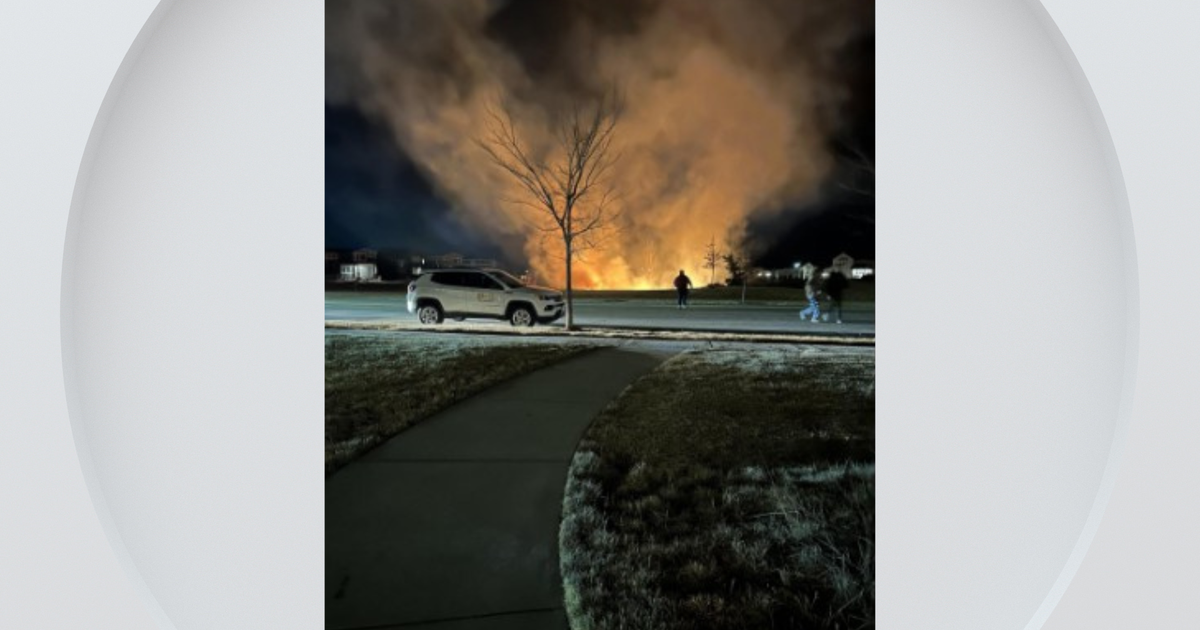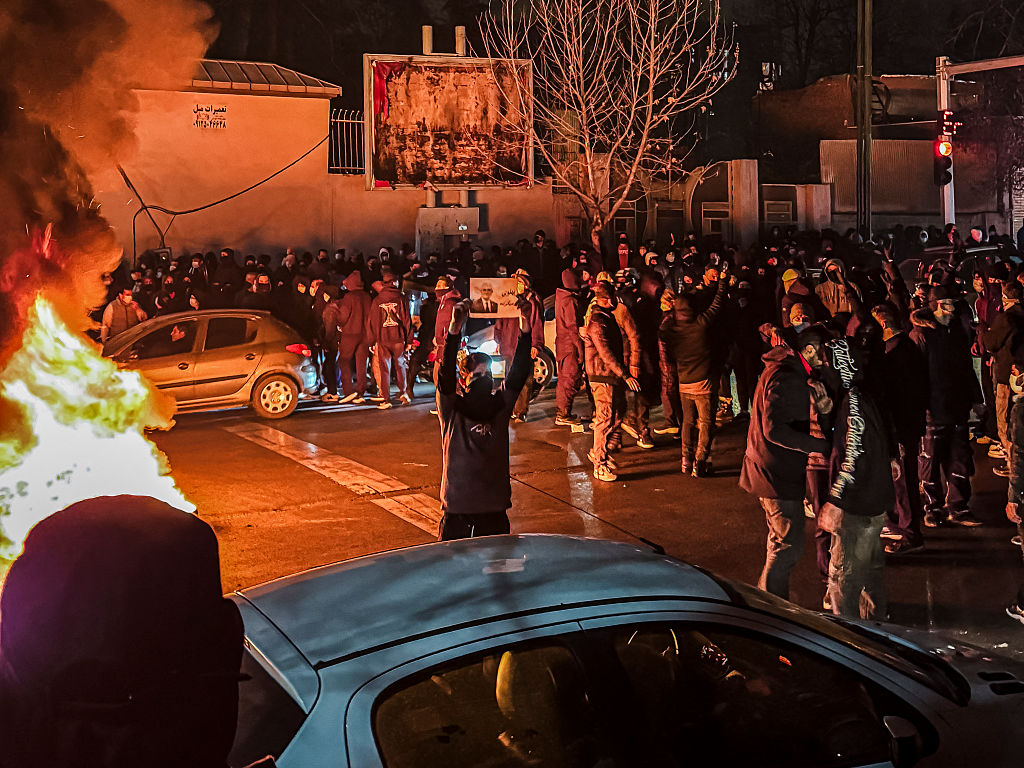Transcript: Robert O'Brien on "Face the Nation," February 2, 2020
The following is a transcript of an interview with Robert O'Brien that aired Sunday, February 2, 2020, on "Face the Nation."
MARGARET BRENNAN: We begin this morning with President Trump's national security adviser, Robert O'Brien. Good morning to you, Mr. Ambassador.
NATIONAL SECURITY ADVISER ROBERT O'BRIEN: Good morning. Thanks for having me.
MARGARET BRENNAN: How satisfied are you with the information that the Chinese government is sharing? Do we know where this virus came from?
O'BRIEN: We don't now. We're- we're working with the- the Chinese authorities, their health authorities and the World Health Organization and our own folks to- to get to the bottom of it. So far, the Chinese have been more transparent, certainly than in past crises, and we appreciate that. And we continue to offer assistance to the Chinese. We've offered to send over CDC and other U.S. medical and public health professionals. And we have not heard back yet from the Chinese on those offers, but we're prepared to continue to cooperate with them.
MARGARET BRENNAN: There were a number of reports, though, that local government officials in Wuhan didn't flag this and, in fact, may have covered up the extent of this virus. Is Beijing being transparent now?
O'BRIEN: Well, we- we hope so. And- and we've asked them for transparency. And we're starting to see- your reporter in the intro had the- the new numbers. I think there were 2,000 more cases. We're up to almost 15,000 cases of infection in China. I think 300 deaths. And we have eight here in the U.S. So right now, there's- there's no reason for Americans to- to panic. This is something that is a low risk, we think, in the U.S. But President Trump, from the day he took office, made protecting Americans and keeping them safe, whether it's from terrorists or criminal organizations or from viruses like the new novel coronavirus is top priority. So- so we're taking steps to keep Americans safe and the government is functioning in that direction.
MARGARET BRENNAN: You know, China has allowed some World Health Organization experts in, but you are saying specifically you want American members of the CDC on the ground. What would their role be and why is China saying no?
O'BRIEN: We don't know that. Look, we know what the role of our folks would be. We've got a very- probably the top public health officials in the world are- are resident here in the United States with the CDC and the NIH. We've got tremendous expertise. We've got the greatest medical system in the world. And- and look, this is a worldwide concern. We want to help our Chinese colleagues if we can. And- and we'll see. We've made the offer, and we'll- we'll see if they accept the offer. But- but this is- this is serious. It's serious for China. It's serious for the region and for the world. That's why we're taking the steps we're taking to protect Americans right now.
MARGARET BRENNAN: And you need American boots on the ground, essentially doctors to actually be able to trust the information?
O'BRIEN: Look, I think we can be helpful if we're on the ground. Right now the Chinese are providing information to us and we're taking that for what it's worth. But at the same time, we're monitoring ourselves. And- and what we're especially doing is monitoring the situation here in the United States to make sure Americans are- are- continue to be safe from this virus.
MARGARET BRENNAN: You know, the Chinese government has taken umbrage at some remarks by U.S. officials. And we know the U.S. and Chinese economies are inter- interdependent in many, many ways. But this is what the commerce secretary said this week.
(BEGIN SOT)
WILBUR ROSS: It does give businesses yet another thing to consider, because you had SARS, you have the African swine virus there. Now you have this. It's another risk factor that people need to take into account. So I think it will help to accelerate the return of jobs to North America.
(END SOT)
MARGARET BRENNAN: Is that a fair description of the impact of this virus?
O'BRIEN: Well, I think it's a fair description. I mean, this is a public health crisis. This is not a- a trade issue. We just signed a great phase one trade deal with China. We're negotiating--
MARGARET BRENNAN: But he's saying--
O'BRIEN: --phase two deal.
MARGARET BRENNAN: He's saying it will help the U.S. economy at the expense of China.
O'BRIEN: No, I don't think that's what Wilbur's saying. I think what the secretary of commerce is saying is that we've got our supply lines extended very far into places where we can't mitigate the risk always, either political risk or health risks or that sort of thing. So, American companies for many years push their supply chains out to Asia. I think what Commerce Secretary Ross is saying is there's a danger, there's a risk factor in doing that. And wouldn't it be better if we had supply chains and factories here in the U.S. so- so that our folks weren't- weren't--
MARGARET BRENNAN: Because if--
O'BRIEN: -- weren't facing some of the risks that you face when you're overseas.
MARGARET BRENNAN: Chinese officials have- have said they didn't take that in the way you're characterizing it. And the ambassador here actually just yesterday was saying it sounds like some are saying there's an economic benefit to the United States.
O'BRIEN: Yeah, I- I- I don't think that's how the president views it.
MARGARET BRENNAN: Okay.
O'BRIEN: I don't think that's how Secretary Ross views it. I think what- what their- what Secretary Ross has pointed out, though, is that when you extend a supply chain across the world to try and get cheaper labor and- and cheaper the cost of goods, that there's a- there's a risk in doing that. And he's- he's saying that American companies ought to think twice before they extend the supply chain halfway across the world where you do have health risk, you've got political instability risk, you've got, you know, economic risk of technology transfers. So- so there are a lot of reasons to- to consider keeping our factories and our jobs here in America. We think that's- that's good for the country. But that's- that's- that- that doesn't have anything to do with this virus. I mean, obviously this is a terrible thing for the Chinese people. It's terrible for the world. And we want to do everything we can to- and the president wants to do everything he can to help President Xi and to help the Chinese people deal with this terrible health- public health crisis.
MARGARET BRENNAN: Now, we know the markets and the world are watching what happens with this virus. But I also want to ask you about the National Security Council and this decision we heard this week from the White House that there is an effort to block at least some of John Bolton's book, the man who had your job before you stepped into the role. The NSC says it contains significant amounts of classified material and his lawyers say that's just not true. Have you reviewed the book, personally?
O'BRIEN: So- so- so here- here's the thing, the- the book is I- I want to be very careful about talking about this because it could end up in judicial proceedings or- or litigation. The National--
MARGARET BRENNAN: Meaning the White House is prepared to fight this, to block the release of the book?
O'BRIEN: Well- well here's the thing, when- when Ambassador Bolton came in or when I came in and you're read into sensitive, compartmented, classified programs and you see classified documents and you're involved in meetings where state secrets are discussed, you- you sign a document, a nondisclosure agreement--
MARGARET BRENNAN: Right.
O'BRIEN: --saying that you won't disclose that material. If you want to write a book afterwards or you want to give a speech or publish an article, you have to put that through the review process. And there are career- career professionals who go through the manuscript and, very carefully, and determine whether there's classified material.
MARGARET BRENNAN: Right.
O'BRIEN: They've been in touch with Ambassador Bolton's lawyer and- and they'll continue to be in touch--
MARGARET BRENNAN: Since that letter this week?
O'BRIEN: Yeah- yeah. They'll- they'll continue to be in touch. You've seen the letter. They'll continue to be in touch with Ambassador Bolton's lawyer, because what we need to do as the National Security Council is to make sure that state secrets and- and important classified information that could jeopardize American lives are not released.
MARGARET BRENNAN: Did anyone on the NSC leak it?
O'BRIEN: No--
MARGARET BRENNAN: And have you asked members of the NSC--
O'BRIEN: Yeah.
MARGARET BRENNAN: --that question?
O'BRIEN: I-I said this before on the record. I- I'm very confident that that- that the leaks of that book did not come from the NSC--
MARGARET BRENNAN: Is- Can anyone on the NSC verify what the pres- what- what Bolton has said? I mean, what about John Eisenberg, who is legal counsel for NSC?
O'BRIEN: Well, well--
MARGARET BRENNAN: --And was there at the time. Did Bolton memorialize these conversations he says he witnessed between the president and others telling him to get involved--
O'BRIEN: I mean--
MARGARET BRENNAN: --with Giuliani?
O'BRIEN: --I- I think that's something that's going to be investigated, what- what kind of notes Ambassador Bolton has or had or- or didn't have. And- and so but what the president has said, at least with- with respect to the- the allegation that Ambassador Bolton made, that he told him to call Zelensky, the president has said that did not happen. I believe that Bill Barr and Mike Pompeo have said that that did not happen. And so, look, it's- it's always- it's always disappointing when someone who has access to the most confidential, close information--
MARGARET BRENNAN: Yeah.
O'BRIEN: -- a close relationship with the president, decides to leave the White House and do a tell all-book.
MARGARET BRENNAN: Well--
O'BRIEN: And- and they're- they- look, if someone has--
MARGARET BRENNAN: We have to--
O'BRIEN: --if someone has political differences, that's fine. We've got to be careful--
MARGARET BRENNAN: Okay.
O'BRIEN: --about the classified information.
MARGARET BRENNAN: Ambassador, thank you.
O'BRIEN: Great to be with you. Thank you.



